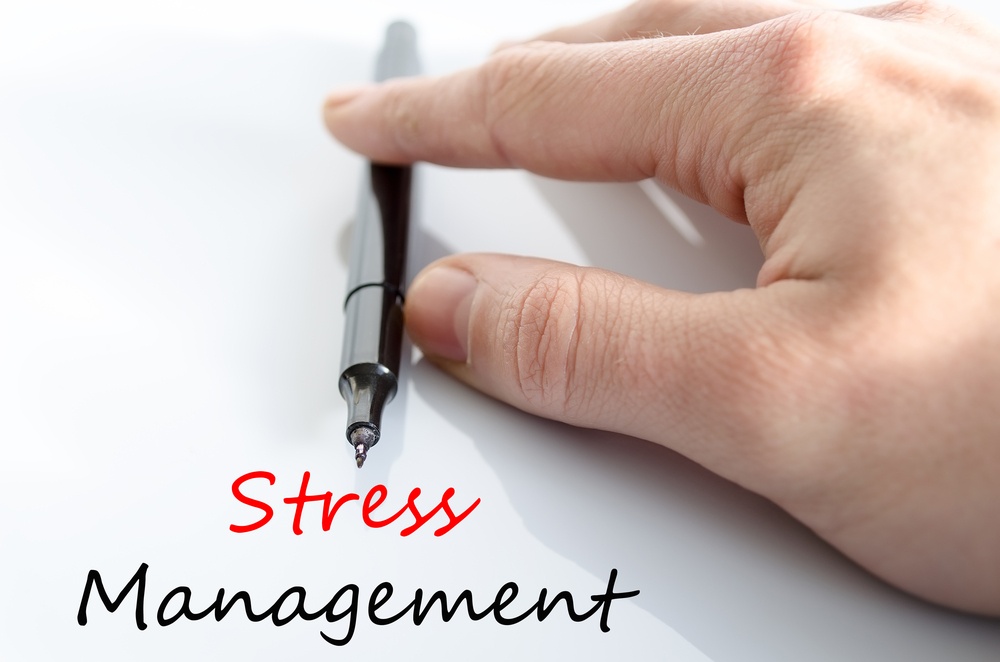We can’t seem to make our minds up about stress. On the one hand, too much long-term stress has been proven to actually make our brains deteriorate, while on the other hand, moderate and temporary stress levels actually force our brains to create new cells.
So is stress a villain or a saviour? The crucial deciding factor lies in how you manage it. Stress will always be a part of our working (and personal lives), but learning how to rise above it and cultivate clarity and calm in your working day will help transform your outlook and direct you towards greater career success.
There’s some really interesting research going on in this field, so we’ve put together some of the ways you can learn to moderate your stress. Some strategies might appeal to you more than others- and that’s fine. Each person is different and only you know your personal triggers and what seems to help for you.

1. Write down the things that are stressing you out. The simple act of writing your concerns down on paper is proven to quieten the brain and helps you focus/sleep/move on to what needs to be done. It can also put things in perspective if your stress reaction is making things out to be worse than they really are. It can also help to write down your ideas about solving the issue, but you don’t need a solution to make this stress-busting technique work. You could even use an app called ‘Worry Box’ to put your concerns down and then lock them away!
2. Stop beating yourself up with negative self-talk. Ask yourself: would you speak to or undermine any of your colleagues the way you talk to yourself? Start noticing how frequently you engage in self-criticism, like when you say, ‘Oh, you’re such an idiot’ to yourself, or convincing yourself you can’t do something before you even start. You’ll probably be amazed at what a hard time you’re giving yourself.
3. Stop wasting time with ‘what-ifs’. Take note of how often you LET YOURSELF engage in worst-case scenarios and waste time ‘disaster-daydreaming’ about all the terrible things that could happen. You’ll probably realise that you’re actually in the driving seat of your stress levels, so pull the handbrake and get off the frightening ‘what-if’ rollercoaster.
4. Use breathing techniques to stop stress in its tracks. When you get that familiar light-chested or frustrated feeling of things getting on top of you, it’s time to regulate your breath. Take 20 deep breaths in and out, concentrating on your breathing. Feels better, doesn’t it.

5. Come up with a strategy beforehand to deal with common triggers. Maybe it’s deciding that each time you speak with that infuriating colleague you’ll take a deep breath before you answer, or not interrupt them and let them run out of steam while you have time to think. It might be deciding not to make spur of the moment decisions when you notice your heart start to beat more rapidly or you become frustrated. It might be taking a walk round the block or making a cup of soothing tea before answering a difficult email. The Austrian psychiatrist Viktor Frankl once said “Between stimulus and response, there is a space. In that space is our power to choose our response.”
6. Exercise. It not only releases endorphins, but it actually calms the brain. You’ll also sleep better (another great stress-buster.)
7. Start a gratitude journal. Yes, I know that some of you just groaned, but there’s some extraordinary research coming out of some rather clever universities about how the process of acknowledging the good things in our lives rewires our brain to be happier and calmer. Aim to write down three things a day that you’re grateful for- and they don’t have to be big- they can be tiny things like loving the new biscuits in the tea room. There is science behind this strategy- so why not try it?
8. Ease up on the coffee! Caffeine is not your friend if you’re trying to calm your mind. Alcohol, sugar and salty foods should be avoided too.

9. Listen to one of these calming songs– they’re designed to slow your heartbeat and lower your blood pressure.
10. Place your current concern in its proper context. Will it really matter next week/month/year/decade? It’s not to say that the issue doesn’t matter, just that it probably doesn’t matter as much as you think it does right now. If you can wrestle your worry back down to its real size, you can get some clarity and the solution will come to you more easily once the panic dissolves.
If you can learn to avoid or moderate your stress reactions, you can leave behind that tense feeling, those nerves, and that irritability that so often gets in the way of success—and happiness—at work.
Until next time,
Julia









